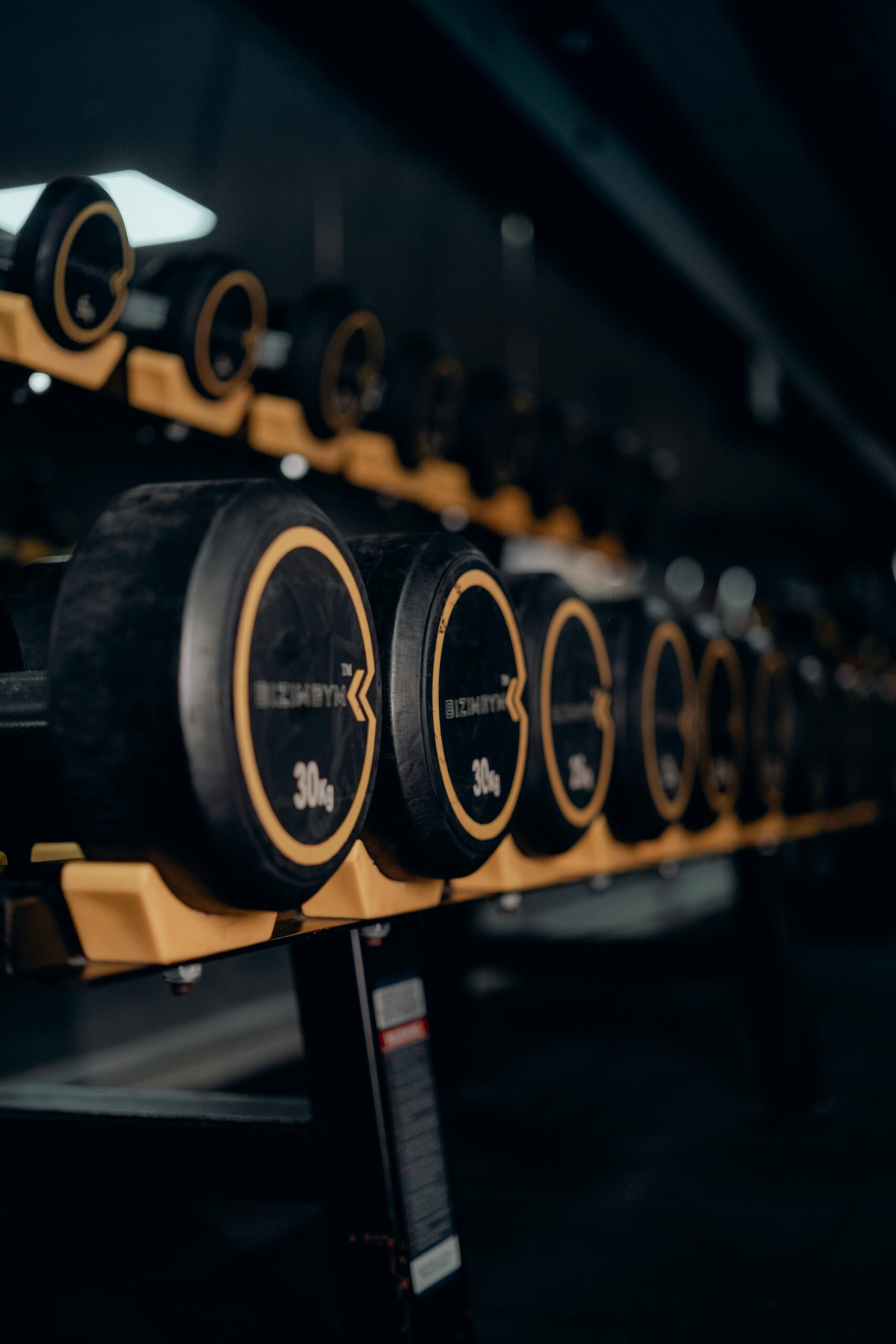Ultimate Practical Guide to Free Muscle Building Training Plans in 2025: Uncover the Best Strategies!
In the quest for building muscle effectively, having a solid training plan is crucial. Whether you’re a beginner eager to embark on your muscle-building journey or a seasoned athlete looking to refine your strategy, understanding the fundamentals is essential. Muscle building, or muskelaufbau in German, involves a combination of proper training, nutrition, and recovery techniques. With an array of free resources now available, anyone can access training plans suited to their goals, without breaking the bank. This article will delve into various muskelaufbau trainingsprogramm, outline effective strategies, and provide expert tips for optimal results.
Throughout this guide, we will explore the following key areas: the fundamentals of effective muscle building, tailored training plans for various skill levels, essential nutrition for muscle growth, and tips for maintaining motivation. You’ll also find practical recommendations from professionals in the field, ensuring you are well-prepared to embark on your fitness journey.
Whether you’re aiming for increased strength, improved aesthetic appeal, or overall health benefits, following the right muskelaufbau plan can lead to significant gains. The key takeaways include understanding how to create a personalized training program, leveraging free online resources, and maintaining a balanced diet rich in protein and nutrients.
Essential Guide to Building Muscle with Effective Plans
Understanding Muscle Building
Muscle building is a complex process that requires a blend of resistance training, proper nutrition, and adequate rest. It’s essential to grasp the basics of muskelaufbau to maximize effectiveness. This section breaks down the physiology behind muscle growth, known as hypertrophy, which occurs when muscle fibers sustain damage through strength training.
The key principles of muscle building include the concepts of progressive overload, wherein weights are progressively increased to stimulate muscle adaptation. Additionally, it’s essential to balance training intensity with the frequency of workouts to avoid overuse injuries, particularly when engaging in krafttraining muskelaufbau.
Understanding these principles lays a solid groundwork for both novice and advanced athletes aiming to enhance their performance. Building on these fundamentals, let’s explore tailored training plans that suit different scenarios.
Creating Your Personalized Training Plan
Designing a personalized trainingsplan muskelaufbau that aligns with your fitness level and goals is crucial. For beginners, the focus should be on mastering form and building foundational strength. This can involve bodyweight exercises or light resistance with freihanteln (free weights).
For intermediate to advanced individuals, utilizing compound movements like squats, deadlifts, and bench presses can enhance muscle recruitment across multiple muscle groups. Moreover, varying your training to include exercises targeting all muscle areas, such as the muskelaufbau mit gewichten, is essential for balanced development.
It’s also important to consider training duration, typically ranging from 4 to 12 weeks, to see significant improvements. This naturally leads us to the importance of structured periodization strategies and their role in long-term progress.
The Role of Periodization in Muscle Growth
Periodization refers to systematically planning training variables over time to optimize performance and recovery. By cycling through different phases—such as hypertrophy, strength, and peaking—athletes can prevent plateaus in their muskelaufbau training.
The effectiveness of periodized training lies in its adaptability and ability to maintain engagement. Moreover, integrating a mix of training modalities, including muskelaufbau mit cardio, not only supports muscle growth but improves cardiovascular fitness as well.

Top Nutrition Strategies for Muscle Building
The Importance of Protein in Muscle Gain
A well-rounded diet plays a critical role in supporting muscle growth. Among various nutrients, protein is essential as it provides the building blocks required for muscle repair and growth. For effective muskelaufbau ernährungsplan, aim for a daily protein intake of approximately 1.6 to 2.2 grams per kilogram of body weight.
Top protein sources include lean meats, fish, eggs, dairy, and plant-based alternatives like beans and lentils. Additionally, considering muskelaufbau suppen, rich in protein content, can be an excellent way to enhance intakes in a delicious manner.
Alongside protein, maintaining an adequate caloric intake to ensure energy balance is crucial. This involves calculating your total daily energy expenditure (TDEE) and ensuring your caloric surplus supports muscle growth effectively. This connects closely to proper meal timing and nutrient distribution.
Meal Timing and Frequency for Optimal Performance
Timing your meals and snacks strategically can enhance muscle recovery and performance. Research suggests that consuming protein-rich meals within a post-workout window assists in recovering from challenging sessions. Utilizing supplements like whey protein muskelaufbau can provide a convenient protein source after workouts.
Frequent feeding throughout the day—aiming for every 3-4 hours—ensures your body consistently receives nutrients for muscle repair. Including healthy carbohydrates and fats in your diet also sustains energy levels for intensive workouts and everyday activities.

Practical Tips and Techniques for Muscle Growth
Incorporating Effective Muscle-Building Exercises
To see noticeable improvement, it’s vital to perform effective exercises specifically targeting muscle groups. Here are a few recommended exercises for building particular muscle areas:
- Chest: Bench Press, Push-ups, Dumbbell Flyes
- Back: Pull-ups, Bent-over Rows, Deadlifts
- Legs: Squats, Lunges, Leg Press
- Arms: Bicep Curls, Tricep Extensions
Employing a mix of free weights, machines, and bodyweight exercises will ensure comprehensive muscle engagement, promoting balanced development. Techniques such as supersets or drop sets can additionally intensify workouts and stimulate further muskelaufbau fortschritte.
Staying Motivated Throughout Your Journey
Staying motivated is fundamental to achieving your muscle-building goals. Setting realistic milestones and tracking your progress with applications or in a journal creates accountability. Joining a muskelaufbau community—either online or in-person—can foster motivation through shared experiences and learning.
Also, don’t forget to celebrate each success along the way, whether big or small, as this can significantly enhance your long-term commitment to training. Consideration of mental aspects of training, such as visualization techniques and positive reinforcement, also contributes to sustained motivation.
Common Mistakes to Avoid in Muscle Building
Recognizing and Addressing Common Pitfalls
While aiming for effective muscle growth, it’s important to recognize and avoid common mistakes that can hinder progress. Bypassing proper form or lifting too heavy too soon can lead to injuries. Consequently, it’s vital to prioritize form over weight, especially for beginners.
Another common mistake involves neglecting recovery. Muscles require time to repair and grow, and rest days should not be viewed as setbacks but as essential components of a successful muskelaufbau training.
Adapting Your Plan as Needed
Finally, adapting your muskelaufbau plan as your body adjusts to your routine is essential in preventing plateaus. This may include altering exercises, rep ranges, or training styles periodically to introduce variety and maintain progress.
Q&A: Common Questions About Muscle Building
How often should I change my training plan?
To maintain progression, changing your training plan every 4 to 8 weeks is advisable. This keeps your body challenged and can prevent plateaus.
What are some effective muscle-building exercises for beginners?
Begin with fundamental exercises such as bodyweight squats, push-ups, and dumbbell lunges to develop strength and proper form.
How important is nutrition in muscle building?
Nutrition is crucial as it provides the necessary building blocks for muscle repair and growth. A balanced diet with an emphasis on protein intake supports your training efforts.
Can I build muscle at home?
Absolutely! Many effective muskelaufbau übungen can be performed at home with minimal equipment, such as resistance bands or dumbbells.
Do supplements play a role in muscle growth?
While not essential, certain supplements, like protein powders, can help meet your nutritional needs and support muscle-building efforts, especially for those struggling to achieve adequate protein intakes.
